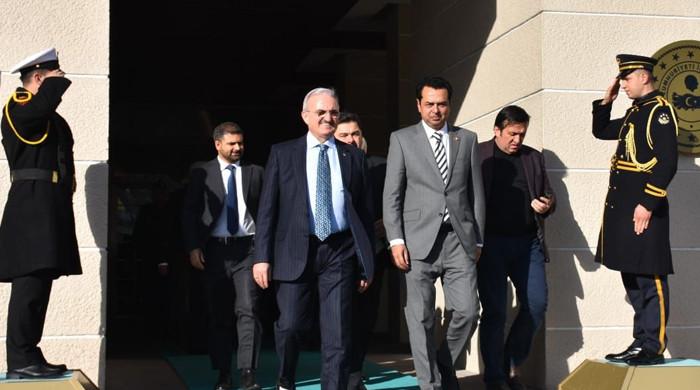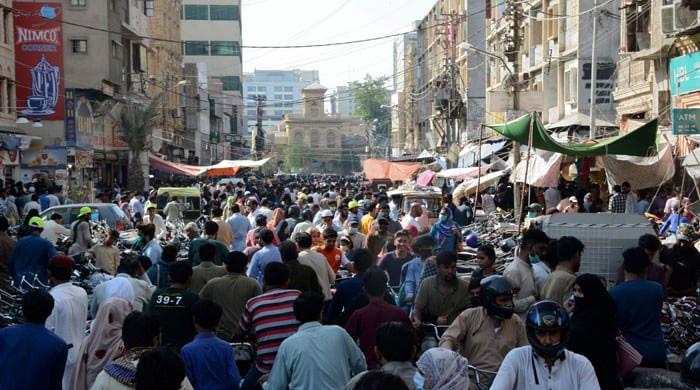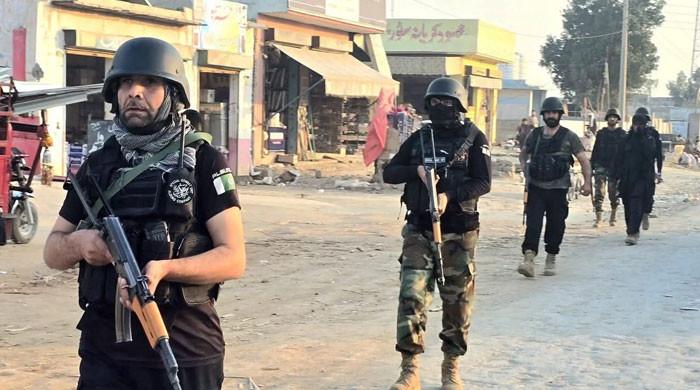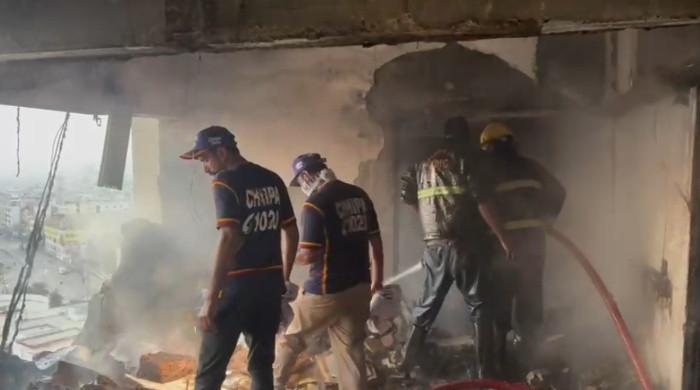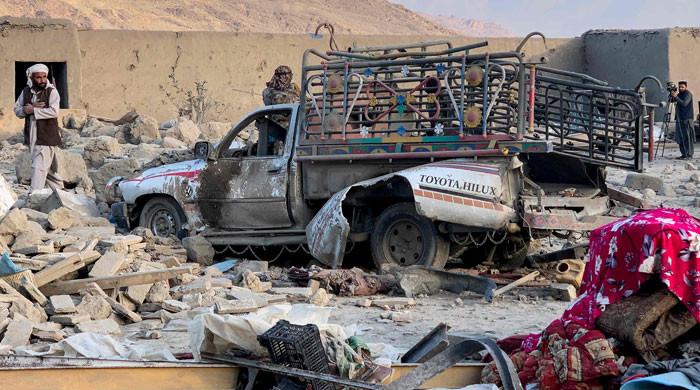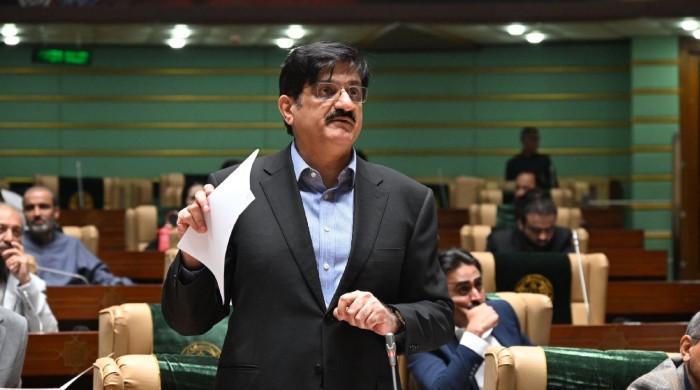Pentagon wasn't aware of Pakistan's decision to launch offensive in NWA
ISLAMABAD: Pakistan said it launched a major ground offensive Sunday to clear out the Pakistani Taliban and other local and foreign militants from the North Waziristan Agency tribal area, a move...
June 16, 2014
The news followed predawn airstrikes Sunday by Pakistan in the northwestern tribal areas that the military said killed 105 militants.
A U.S. defense official said Sunday that the Pentagon wasn't aware of Pakistan's decision to launch a new offensive in North Waziristan, said a report published in Wall Street Journal.
Rear Adm. John Kirby, the Pentagon press secretary, said the attacks on the Karachi airport were a stark reminder of the constant dangers Pakistan faces from militants.
"The Pakistan military and the government understand the threat, and they continue to go after that threat," he said.
Javed Hussain, a retired brigadier from the Special Services Group commando unit of the Pakistani army, said the army should have first tackled the militants' presence in the cities before moving on to North Waziristan.
"Those in the urban areas are completely at the mercy of these monsters," said Mr. Hussain. "They have sleeper cells all over."
The Pakistani Taliban and its militant allies are believed by security officials to have members and sympathizers in all major urban areas, including the suburbs of the capital Islamabad. In Karachi, the Taliban has influence over a vast area on the city's periphery, police officers there say.
Washington has pressed Islamabad for years to clear out North Waziristan, a sanctuary for Pakistani militants, Afghan insurgents and al Qaeda operatives. Militants based there claimed responsibility for the June 8 attack on Karachi's Jinnah International Airport that left at least 35 dead.
North Waziristan, along the border with Afghanistan, is the only one of Pakistan's seven tribal areas that is still largely under militant control.
"Using North Waziristan as a base, these terrorists have waged a war against the state of Pakistan and have been disrupting our national life in all its dimensions, stunting our economic growth and causing enormous loss of life and property," said a statement from the Pakistani military.
Pakistan's Prime Minister Nawaz Sharif had attempted to negotiate a peace deal with the Pakistani Taliban, but that effort reached a stalemate in recent weeks and completely collapsed in the wake of the Karachi airport attack. The Pakistani Taliban operate separately from the Afghan Taliban.
The military said it was acting "on the direction of the government" and that it had "launched a comprehensive operation against foreign and local terrorists who are hiding in sanctuaries in North Waziristan."
Khawaja Muhammad Asif, the defense minister, warned that the country should expect retaliatory attacks by the militants. "Our enemy is a coward. They will try to target the civilian population," Mr. Asif told.
Residents in North Waziristan didn't see any immediate signs of ground fighting.
The military said that it had isolated North Waziristan by deploying troops to seal off its boundaries with other parts of Pakistan and its border with Afghanistan. Cordons were also thrown around the two main towns of Mir Ali and Miranshah, the military said.
A military official said that between 14,000 and 20,000 soldiers, depending on rotations, were normally stationed in North Waziristan before the operation. He expected the offensive would require no more than 30,000 soldiers altogether.
North Waziristan has been under curfew for the past two days, including Sunday, giving the civilian population no chance to escape the fighting, local residents said.
"Even our water has finished. Food is running out. Our children are ill," said Malik Faridullah, aged 45, speaking from the Mir Ali area. "Eighty percent of the people are still here."
The military operation is expected to focus on Mir Ali, a hub for foreign militants, including ethnic Uzbek fighters, who had claimed responsibility for the airport attack.
A security official said the first phase of the operation would tackle Miranshah, the village of Machees, Mir Ali, the village of Mosaki, and the Dosali area near the town of Razmak.
The military said that it will make announcements for the local population of North Waziristan to come to designated areas "for their orderly and dignified evacuation." It said camps had been prepared for them in the adjoining province of Khyber Pakhtunkhwa.
Aid agencies believe that as many as 400,000 people could now flood out of North Waziristan. So far, the Pakistani government hasn't asked for international assistance to help cope with the displaced population.
Many people are expected to be taken in by relatives in Khyber Pakhtunkhwa.
Gul Naeem Khan, from a village near Miranshah, said that he had seen large-scale movements of troops and weaponry in recent days. He said that the soldiers were taking control of the higher ground in the area, while all military positions were reinforced.
Muhammad Arman, also from a village near Miranshah, said he woke up Sunday to see that tanks had been moved into his area.
North Waziristan is also home to the Haqqani Network, a deadly Afghan insurgent group that has used the area as a haven for decades.
Hundreds of thousands of people fled ahead of the two previous major army operations against militants in recent years, the offensives in South Waziristan and the Swat valley in 2009.
Khalid Munir, a retired army colonel, said the Swat and South Waziristan offensives should have been quickly followed by similar action in North Waziristan, but Pakistan had long pressure for such an operation.
Mr. Munir expected that the North Waziristan operation would last three to four weeks and would probably drive the Haqqani militants and much of the Pakistani Taliban across the border to Afghanistan.
"With the North Waziristan operation, 20% of the terrorism problem will be solved. At least their command-and-control structure will be broken," said Mr. Munir.
The military said that it had asked the Afghan authorities to block off their side of the border and eliminate "sanctuaries" for the Pakistani Taliban in eastern Afghanistan. There was no immediate response from Kabul.
Prime Minister Sharif is expected to address the parliament on Monday on the North Waziristan operation.
Airstrikes against militants in the Khyber tribal region killed 25 militants on June 10, two days after the Karachi airport attack.
A U.S. drone strike in North Waziristan on June 11, the first in almost six months, killed at least four Uzbek militants, according to Pakistani intelligence officials.
The airstrikes earlier Sunday hit targets in the Degan area of the North Waziristan at around 1:30 a.m. local time, the military said in a statement, adding that most of those killed were "Uzbek foreigners." An ammunition dump was also destroyed.
The Islamic Movement of Uzbekistan, a group comprising mostly ethnic Uzbek militants, claimed responsibility for the June 8 airport assault. The IMU works closely with the Pakistani Taliban and al Qaeda, and is based in the northwestern tribal regions.
"There were confirmed reports of the presence of foreign and local terrorists in these hide-outs who were linked to the planning of the Karachi airport attack," the Pakistani military said Sunday.
Pakistani military officials said there were reports that Abu Abdul Rehman Almaani, who they say was the mastermind behind the airport attack, was killed in the Sunday airstrikes.




